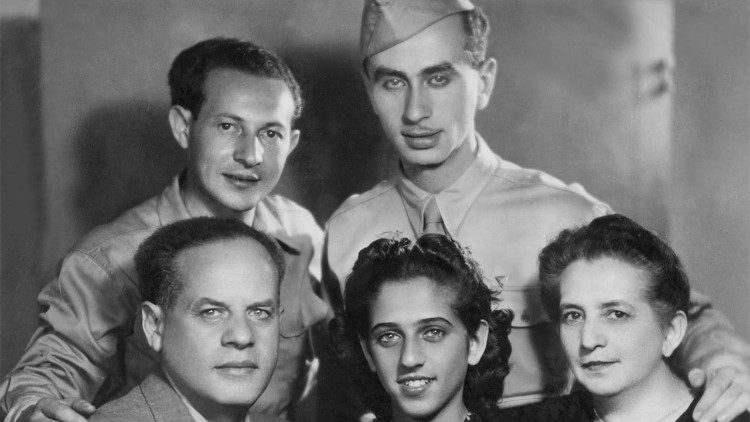Voices from the darkness, four friends in the turmoil of war and persecution

 “We were grieving and shaking from a nervous reaction because we couldn’t defend ourselves. Almost none of us was able to eat dinner, but thank God the people that surround us and their relatives are merciful. They are trying to comfort us and they will cater for our accommodation for the future, in order to try to save our lives, and that is why we will always be grateful to them…”.
“We were grieving and shaking from a nervous reaction because we couldn’t defend ourselves. Almost none of us was able to eat dinner, but thank God the people that surround us and their relatives are merciful. They are trying to comfort us and they will cater for our accommodation for the future, in order to try to save our lives, and that is why we will always be grateful to them…”.
Wednesday, December 1st, 1943. Alessandro Smulevich, a young man, takes a pen and paper to describe not only the feeling of anxiety that is overwhelming him, but also the gratitude toward the ones who are helping him during that desperate hour. He and his family are refugees in Firenzuola, an Apennines municipality where two local families are providing relief and hospitality. He has just learnt that the Republic of Salò is carrying out a relentless manhunt against Jews.
This is one of the most dramatic pages of his diary written during his clandestine period, which has recently become a proper book entitled Matti e Angeli. Una famiglia ebraica nel cuore della Linea Gotica (Matti e Angeli. A Jewish family in the heart of the Gothic Line) published by Pendragon, edited by the son Ermanno, a retired surgeon, and Luciano Ardiccioni and Rosanna Marcato, researchers of local history, with a preface by historian Anna Foa.
The manuscript was recovered in 2017 and its finding has proved decisive for the
honorific of Righteous Among the Nations to Armando and Clementina Matti, Pietro and Dina Angeli, the four protagonists of the rescue operation with their sons and acquaintances. Its finding has also connected further dots, leading to new meetings and plans for the future.
Together with Alessandro’s story it is important to remember Lia Sara Millul, Goffredo Paggi, and Anna Caterina Dini’s ones. They were all friends, the first three were Jews, and they used to meet on the streets of Prato during the Spring of 1943.
Alessandro is the only one who could save himself, instead Lia Sara got arrested on November 26th, 1943, even though she was hosted in a monastery in Florence. She left her mark on the few documents regarding the persecution and the deportation and some traces of her remain also in a picture and in the lock of hair that was given to her friend Anna before leaving for Florence.
Goffredo was denounced and arrested in the same city on December 7th, victim of delation. He was detained first in the monumental complex of Le Murate in Florence and afterwards he was taken to Villa La Selva, a concentration camp in Bagno di Ripoli, Florence. He was later transported to San Vittore, a prison in Milan, and on January 30th, 1944 he was eventually deported to Auschwitz, from where he did not return. Anna Caterina waited for her boyfriend and her beloved friend for a long time, but she had no news of them until long after the end of the war.
Alessandro’s family found his diary in a closet in 2017. The stories of the lives of the four guys have been made into a book and three of their descendants (Vera Paggi, Ermanno Smulevich, and Anna Caterina’s son Roberto Visconti) have today the opportunity to look back at their families’ accounts and make them a moment of “living” Memory. On the occasion of the International Holocaust Remembrance Day, a show based on this book was designed for the students and the Teatro Metastasio in Prato to bring to the stage the dramatic story that was able to piece together various experiences and return names and images to the now-deceased protagonists.
Above, Alessandro Smulevich, first from right, in a family portrait taken in 1945.
Translation by Sofia Busatto, revised by Martina Bandini, students at the Secondary School of Modern Languages for Interpreters and Translators of the University of Trieste, interns at the newspaper office of the Union of the Italian Jewish Communities – Pagine Ebraiche.
